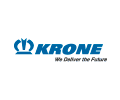The International Road Transport Union (IRU), the world road transport organisation, has called on EU Member States to firmly reject the European Parliament’s proposal to impose mandatory purchasing targets for zero-emission heavy-duty vehicles on transport operators. In a letter sent to Member States, IRU has urged EU countries to reject mandatory purchasing targets for zero-emission heavy-duty vehicles (HDVs) on transport operators, as proposed by the European Parliament as part of the revision of the CO₂ emission standards for HDVs.
In a letter sent to Member States, IRU has urged EU countries to reject mandatory purchasing targets for zero-emission heavy-duty vehicles (HDVs) on transport operators, as proposed by the European Parliament as part of the revision of the CO₂ emission standards for HDVs.
In November 2023, the Parliament adopted its negotiating position on the European Commission’s proposal on CO₂ standards for HDVs, introducing a new article that would mandate the Commission to present a legislative proposal to increase the share of zero-emission heavy-duty motor vehicles owned or leased by large fleet operators.
IRU Director of EU Advocacy Raluca Marian said, “Placing mandatory purchasing targets for zero-emission vehicles on private operators would be in opposition to basic rights guaranteed by the EU Charter.
“The mandate to purchase zero-emission vehicles may not only violate the right to property and the right to conduct business, but it may also lead to market distortions since the Parliament’s version envisages that such restrictions on capital use will only apply to large operators.
“Both larger and smaller transport operators have razor-thin margins. The obligation to buy vehicles that are potentially not suited to their types of operations and are two to three times more expensive would unavoidably place some players at a competitive disadvantage.”
Furthermore, there is currently a significant lack of alternative fuels infrastructure across the EU and the Alternative Fuels Infrastructure Regulation will only become applicable starting this year.
“The purchase of zero-emission vehicles should be supported by financial incentives for the uptake of new technologies and by creating the enabling conditions, including the infrastructure, to run such vehicles. Any proposal that forces transport operators to purchase certain types of vehicles should be firmly rejected as it would amount to a state-controlled economy,” concluded Raluca Marian.


.gif?rand=8922)









